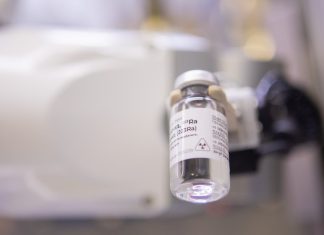Russian scientists plan to create and introduce drugs that restore aging cells in 2028-2030, Russian Deputy Prime Minister Tatyana Golikova said.
She added that in the coming years the country wants to create a biomedical cellular product for the treatment of male infertility, brain and spinal cord lesions, wounds and burns, and restoration of cartilage tissue. Moreover, registration of the first Russian device for the correction of cognitive and stress disorders is expected early next year. Golikova’s words were quoted by Interfax.
She remarked at the Russia and the World: Healthy Longevity Trends forum, “It was once considered an incredible future. Indeed, some time ago, we might have said that. But today, this is the reality we are striving to build.”
She also added that the reproductive screening, which started in 2024 and covered almost 7 million people last year (including 2.6 million men), revealed more than 230,000 cases of reproductive diseases. In today’s demographic situation, it is crucial to restore reproductive function.
Golikova expressed hope that a domestic biomedical drug for the treatment of male infertility will appear in the late 2025, after the completion of clinical trials. The product has already demonstrated the first positive results.
The second biomedical cellular product, which is currently being developed, is intended for the treatment of wounds and burns. More than 200,000 people apply to get treatment with burns and wounds every year.
The third area was tissue engineering products for regenerative medicine, including the restoration of cartilage in large joints, which are already included in clinical guidelines. As Golikova noted, they can later replace the endoprosthetics. Drugs for cartilage repair and for the treatment of brain and spinal cord lesions, which are currently undergoing clinical trials, are expected as early as the beginning of 2026.
“What we expect from healthy longevity medicine is that biomedical cell products and products of tissue engineering, regenerative biomedicine, and neurotechnology will be introduced into medical practice this year and early next year. This is the area that is a priority for this national project (“New Health Saving Technologies”). First of all, these developments are aimed at restoring lost functions or tissues,” Golikova said at the Russia and the World: Healthy Longevity Trends forum.
Earlier it was reported that technology giants IBM and Google have introduced technologies that can provide insights into the nature of aging and accelerate drug development to slow it down. The companies’ quantum computers are already used to model molecules, analyze protein interactions, and study aging processes at the cellular level.




